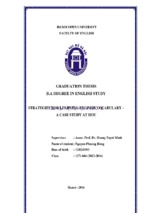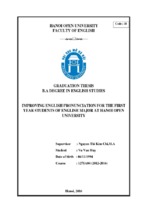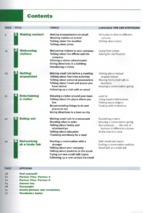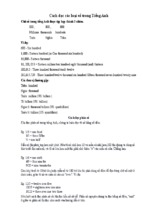A Street Cat Named Bob
James Bowen
www.hodder.co.uk
First published in Great Britain in 2012 by Hodder & Stoughton
An Hachette UK company
Copyright © James Bowen and Garry Jenkins 2012
The right of James Bowen and Garry Jenkins to be identified as the
Authors of the Work has been asserted by them in accordance with
the Copyright, Designs and Patents Act 1988.
All rights reserved. No part of this publication may be reproduced,
stored in a retrieval system, or transmitted, in any form or by any
means without the prior written permission of the publisher, nor be
otherwise circulated in any form of binding or cover other than that
in which it is published and without a similar condition being
imposed on the subsequent purchaser.
A CIP catalogue record for this title is available from the British Library
ISBN 978 1 444 73713 4
Hodder & Stoughton Ltd
338 Euston Road
London NW1 3BH
www.hodder.co.uk
To Bryn Fox . . . and anyone who has lost a friend
Contents
1 Fellow Travellers
2 Road To Recovery
3 The Snip
4 Ticket To Ride
5 Centre of Attention
6 One Man and His Cat
7 The Two Musketeers
8 Making It Official
9 The Escape Artist
10 Santa Paws
11 Mistaken Identity
12 Number 683
13 Pitch Perfect
14 Under the Weather
15 The Naughty List
16 Angel Hearts
17 Forty-eight Hours
18 Homeward Bound
19 The Stationmaster
20 The Longest Night
21 Bob, The Big Issue Cat
Acknowledgements
Bob Information Page
Chapter 1
Fellow Travellers
There’s a famous quote I read somewhere. It says we are all given second chances every day of our
lives. They are there for the taking, it’s just that we don’t usually take them.
I spent a big chunk of my life proving that quote. I was given a lot of opportunities, sometimes on a
daily basis. For a long time I failed to take any of them, but then, in the early spring of 2007, that
finally began to change. It was then that I befriended Bob. Looking back on it, something tells me it
might have been his second chance too.
I first encountered him on a gloomy, Thursday evening in March. London hadn’t quite shaken off the
winter and it was still bitingly cold on the streets, especially when the winds blew in off the Thames.
There had even been a hint of frost in the air that night, which was why I’d arrived back at my new,
sheltered accommodation in Tottenham, north London, a little earlier than usual after a day busking
around Covent Garden.
As normal, I had my black guitar case and rucksack slung over my shoulders but this evening I also
had my closest friend, Belle, with me. We’d gone out together years ago but were just mates now. We
were going to eat a cheap takeaway curry and watch a movie on the small black and white television
set I’d managed to find in a charity shop round the corner.
As usual, the lift in the apartment block wasn’t working so we headed for the first flight of stairs,
resigned to making the long trudge up to the fifth floor.
The strip lighting in the hallway was broken and part of the ground floor was swathed in darkness,
but as we made our way to the stairwell I couldn’t help noticing a pair of glowing eyes in the gloom.
When I heard a gentle, slightly plaintive meowing I realised what it was.
Edging closer, in the half-light I could see a ginger cat curled up on a doormat outside one of the
ground-floor flats in the corridor that led off the hallway.
I’d grown up with cats and had always had a bit of a soft spot for them. As I moved in and got a
good look I could tell he was a tom, a male.
I hadn’t seen him around the flats before, but even in the darkness I could tell there was something
about him, I could already tell that he had something of a personality. He wasn’t in the slightest bit
nervous, in fact, completely the opposite. There was a quiet, unflappable confidence about him. He
looked like he was very much at home here in the shadows and to judge by the way he was fixing me
with a steady, curious, intelligent stare, I was the one who was straying into his territory. It was as if
he was saying: ‘So who are you and what brings you here?’
I couldn’t resist kneeling down and introducing myself.
‘Hello, mate. I’ve not seen you before, do you live here?’ I said.
He just looked at me with the same studious, slightly aloof expression, as if he was still weighing
me up.
I decided to stroke his neck, partly to make friends but partly to see if he was wearing a collar or
any form of identification. It was hard to tell in the dark, but I realised there was nothing, which
immediately suggested to me that he was a stray. London had more than its fair share of those.
He seemed to be enjoying the affection, and began brushing himself lightly against me. As I petted
him a little more, I could feel that his coat was in poor condition, with uneven bald patches here and
there. He was clearly in need of a good meal. From the way he was rubbing against me, he was also
in need of a bit of TLC.
‘Poor chap, I think he’s a stray. He’s not got a collar and he’s really thin,’ I said, looking up at
Belle, who was waiting patiently by the foot of the stairs.
She knew I had a weakness for cats.
‘No, James, you can’t have him,’ she said, nodding towards the door of the flat that the cat was
sitting outside. ‘He can’t have just wandered in here and settled on this spot, he must belong to
whoever lives there. Probably waiting for them to come home and let him in.’
Reluctantly, I agreed with her. I couldn’t just pick up a cat and take him home with me, even if all
the signs pointed to the fact it was homeless. I’d barely moved into this place myself and was still
trying to sort out my flat. What if it did belong to the person living in that flat? They weren’t going to
take too kindly to someone carrying off their pet, were they?
Besides, the last thing I needed right now was the extra responsibility of a cat. I was a failed
musician and recovering drug addict living a hand-to-mouth existence in sheltered accommodation.
Taking responsibility for myself was hard enough.
The following morning, Friday, I headed downstairs to find the ginger tom still sitting there. It was as
if he hadn’t shifted from the same spot in the past twelve hours or so.
Once again I dropped down on one knee and stroked him. Once again it was obvious that he loved
it. He was purring away, appreciating the attention he was getting. He hadn’t learned to trust me 100
per cent yet. But I could tell he thought I was OK.
In the daylight I could see that he was a gorgeous creature. He had a really striking face with
amazingly piercing green eyes, although, looking closer, I could tell that he must have been in a fight
or an accident because there were scratches on his face and legs. As I’d guessed the previous
evening, his coat was in very poor condition. It was very thin and wiry in places with at least half a
dozen bald patches where you could see the skin. I was now feeling genuinely concerned about him,
but again I told myself that I had more than enough to worry about getting myself straightened out. So,
more than a little reluctantly, I headed off to catch the bus from Tottenham to central London and
Covent Garden where I was going to once more try and earn a few quid busking.
By the time I got back that night it was pretty late, almost ten o’clock. I immediately headed for the
corridor where I’d seen the ginger tom but there was no sign of him. Part of me was disappointed. I’d
taken a bit of a shine to him. But mostly I felt relieved. I assumed he must have been let in by his
owner when they’d got back from wherever it was they had been.
My heart sank a bit when I went down again the next day and saw him back in the same position
again. By now he was slightly more vulnerable and dishevelled than before. He looked cold and
hungry and he was shaking a little.
‘Still here then,’ I said, stroking him. ‘Not looking so good today.’
I decided that this had gone on for long enough.
So I knocked on the door of the flat. I felt I had to say something. If this was their pet, it was no
way to treat him. He needed something to eat and drink – and maybe even some medical attention.
A guy appeared at the door. He was unshaven, wearing a T-shirt and a pair of tracksuit bottoms
and looked like he’d been sleeping even though it was the middle of the afternoon.
‘Sorry to bother you, mate. Is this your cat?’ I asked him.
For a second he looked at me as if I was slightly mad.
‘What cat?’ he said, before looking down and seeing the ginger tom curled up in a ball on the
doormat.
‘Oh. No,’ he said, with a disinterested shrug. ‘Nothing to do with me, mate.’
‘He’s been there for days,’ I said, again drawing a blank look.
‘Has he? Must have smelled cooking or something. Well, as I say, nothing to do with me.’
He then slammed the door shut.
I made my mind up immediately.
‘OK, mate, you are coming with me,’ I said, digging into my rucksack for the box of biscuits I
carried specifically to give treats to the cats and dogs that regularly approached me when I was
busking.
I rattled it at him and he was immediately up on all fours, following me.
I could see he was a bit uneasy on his feet and was carrying one of his back legs in an awkward
manner, so we took our time climbing the five flights of stairs. A few minutes later we were safely
ensconced in my flat.
My flat was threadbare, it’s fair to say. Apart from the telly, all I had in there was a second-hand
sofa bed, a mattress in the corner of the small bedroom, and in the kitchen area a half-working
refrigerator, a microwave, a kettle and a toaster. There was no cooker. The only other things in the
flat were my books, videos and knick-knacks.
I’m a bit of a magpie; I collect all sorts of stuff from the street. At that time I had a broken parking
meter in one corner, and a broken mannequin with a cowboy hat on its head in another. A friend once
called my place ‘the old curiosity shop’, but as he sussed out his new environment the only thing the
tom was curious about was the kitchen.
I fished out some milk from the fridge, poured it into a saucer and mixed it with a bit of water. I
know that - contrary to popular opinion - milk can be bad for cats because, in fact, they are actually
lactose intolerant. He lapped it up in seconds.
I had a bit of tuna in the fridge so I mixed it up with some mashed up biscuits and gave that to him
as well. Again, he wolfed it down. Poor thing, he must be absolutely starving, I thought to myself.
After the cold and dark of the corridor, the flat was five-star luxury as far as the tom was
concerned. He seemed very pleased to be there and after being fed in the kitchen he headed for the
living room where he curled up on the floor, near the radiator.
As I sat and watched him more carefully, there was no doubt in my mind that there was something
wrong with his leg. Sure enough, when I sat on the floor next to him and started examining him I found
that he had a big abscess on the back of his rear right leg. The wound was the size of a large, caninelike tooth, which gave me a good idea how he’d got it. He’d probably been attacked by a dog, or
possibly a fox, that had stuck its teeth into his leg and clung on to him as he’d tried to escape. He also
had a lot of scratches, one on his face not far from his eye, and others on his coat and legs.
I sterilised the wound as best as I could by putting him in the bathtub then putting some non-
alcoholic moisturiser around the wound and some Vaseline on the wound itself. A lot of cats would
have created havoc if I’d tried to treat them like that but he was as good as gold.
He spent most of the rest of the day curled up on what was already his favourite spot, near the
radiator. But he also roamed around the flat a bit every now and again, jumping up and scratching at
whatever he could find. Having ignored it earlier on, he now began to find the mannequin in the
corner a bit of a magnet. I didn’t mind. He could do whatever he liked to it.
I knew ginger toms could be very lively and could tell he had a lot of pent-up energy. When I went
to stroke him, he jumped up and started pawing at me. At one point he got quite animated, scratching
furiously and almost cutting my hand
‘OK, mate, calm down,’ I said, lifting him off me and putting him down on the floor. I knew that
young males who hadn’t been neutered could become extremely lively. My guess was that he was still
‘complete’ and was well into puberty. I couldn’t be sure, of course, but it again underlined the
nagging feeling that he must have come off the streets rather than from a home.
I spent the evening watching television, the tom curled up by the radiator, seemingly content to be
there. He only moved when I went to bed, picking himself up and following me into the bedroom
where he wrapped himself up into a ball by my feet at the edge of the bed.
As I listened to his gentle purring in the dark, it felt good to have him there. He was company, I
guess. I’d not had a lot of that lately.
On Sunday morning I got up reasonably early and decided to hit the streets to see if I could find his
owner. I figured that someone might have stuck up a ‘Lost Cat’ poster. There was almost always a
photocopied appeal for the return of a missing pet plastered on local lampposts, noticeboards and
even bus stops. There seemed to be so many missing moggies that there were times when I wondered
whether there was a cat-napping gang at work in the area.
Just in case I found the owner quickly, I took the cat with me, attaching him to a leash I’d made out
of a shoelace to keep him safe. He was happy to walk by my side as we took the stairs to the ground
floor.
Outside the block of flats the cat began pulling on the string lead as if he wanted to head off. I
guessed that he wanted to do his business. Sure enough he headed off into a patch of greenery and
bushes adjoining a neighbouring building and disappeared for a minute or two to heed nature’s call.
He then returned to me and happily slipped back into the lead.
He must really trust me, I thought to myself. I immediately felt that I had to repay that trust and try
and help him out.
My first port of call was the lady who lived across the street. She was known locally for looking
after cats. She fed the neighbourhood strays and got them neutered, if necessary. When she opened the
door I saw at least five cats living inside. Goodness knows how many more she had out the back. It
seemed that every cat for miles headed to her backyard knowing it was the best place to get some
food. I didn’t know how she could afford to feed them all.
She saw the tom and took a shine to him straight away, offering him a little treat.
She was a lovely lady but didn’t know anything about where he’d come from. She’d not seen him
around the area.
‘I bet he’s come from somewhere else in London. Wouldn’t surprise me if he’s been dumped,’ she
said. She said she’d keep her eyes and ears open in case she heard anything.
I had a feeling she was right about him being from somewhere far from Tottenham.
Out of interest, I took the cat off his lead to see if he knew what direction to go in. But as we
walked the streets, it was obvious he didn’t know where he was. He seemed completely lost. He
looked at me as if to say: ‘I don’t know where I am; I want to stay with you.’
We were out for a few hours. At one point he scurried off into a bush to do his business again,
leaving me to ask any passing locals whether they recognised him. All I got was blank looks and
shrugs.
It was obvious that he didn’t want to leave me. As we wandered around, I couldn’t help wondering
about his story: where he’d come from and what sort of life he’d led before he’d come and sat on the
mat downstairs.
Part of me was convinced that the ‘cat lady’ across the street was right and he was a family pet. He
was a fine-looking cat and had probably been bought for Christmas or someone’s birthday. Gingers
can be a bit mental and worse if not neutered, as I’d already seen. They can get very dominant, much
more so than other cats. My hunch was that when he’d become boisterous and frisky he had also
become a little too much to handle.
I imagined the parents saying ‘enough is enough’ and - rather than taking him to a refuge or the
RSPCA - sticking him in the back of the family car, taking him for a drive and throwing him out into
the street or on to the roadside.
Cats have a great sense of direction, but he’d obviously been let loose far from home and hadn’t
gone back. Or maybe he’d known that it wasn’t really home at all and decided to find a new one.
My other theory was that he’d belonged to an old person who had passed away.
Of course, it was possible that wasn’t the case at all. The fact that he wasn’t house-trained was the
main argument against him having been domesticated. But the more I got to know him the more
convinced I was that he had definitely been used to being around one person. He seemed to latch on to
people whom he thought would look after him. That’s what he’d done with me.
The biggest clue about his background was his injury, which looked nasty. He’d definitely picked
that up in a fight. From the way it was leaking pus, the wound must have been a few days old, maybe
even a week. That suggested another possibility to me.
London has always had a large population of street cats, strays who wander the streets living off
scraps and the comfort of strangers. Five or six hundred years ago, places like Gresham Street in the
City, Clerkenwell Green and Drury Lane used to be known as ‘cat streets’ and were overrun with
them. These strays are the flotsam and jetsam of the city, running around fighting for survival on a
daily basis. A lot of them were like this ginger tom: slightly battered, broken creatures.
Maybe he’d spotted a kindred spirit in me.
Chapter 2
Road To Recovery
I’d been around cats since I was a child and I felt like I had a pretty good understanding of them.
While I was growing up my family had several Siamese and I remember that at one stage we also had
a beautiful tortoiseshell cat. My memories of all of them were generally fond ones, but inevitably I
suppose the one that stuck most vividly in my mind was the darkest.
I’d grown up in England and Australia and for a while we’d lived in a place called Craigie in
Western Australia. While we were there we had a lovely, white fluffy kitten. I can’t remember where
we got it from but I have a feeling it might have been from a local farmer. Wherever it had come from,
it was a terrible home. For whatever reason it hadn’t been checked out medically before being
handed over to us. It turned out the poor little thing was flea-ridden.
It hadn’t been immediately apparent. The problem was that because the kitten had such thick white
fur the fleas were festering in there and nobody knew. Fleas are parasites, of course. They draw the
life out of other creatures to sustain their own. They basically drained this poor kitten of all its blood.
By the time we spotted it, it was too late. My mother took it to the vet’s but she was told that it had
passed the point of no return. It had all sorts of infections and other problems. It died within a couple
of weeks of us getting it. I was five or six at the time and was devastated - as was my mother.
I’d thought about the kitten often over the years, usually whenever I saw a white cat. But he had
been on my mind a lot this weekend as I’d spent time with the tom. I could tell his coat was in a bad
state. It really was threadbare in places. I had an awful feeling that it would suffer the same fate as the
white kitten.
Sitting in the flat with him that Sunday evening, I made a decision: I wasn’t going to let that happen.
I wasn’t going to assume that the care I had given him was going to make him better. I wasn’t going to
take anything for granted.
I had to take him to a vet. I knew my makeshift medication wasn’t going to be good enough to heal
the wound. But I had no idea what other underlying health issues he might have. I wasn’t going to take
the risk of waiting, so I decided to get up early the next morning and take him to the nearest RSPCA
centre, down the other end of Seven Sisters Road towards Finsbury Park.
I set my alarm early and got up to give the cat a bowl of mashed biscuits and tuna. It was another
grey morning, but I knew I couldn’t use that as an excuse.
Given the state of his leg, I knew he wasn’t going to be up to the ninety-minute walk, so I decided
to carry him and placed him in a green recycling box. It wasn’t ideal but I couldn’t find anything else.
No sooner had we set off than it was clear that he didn’t like it. He kept moving, sticking his paw
over the top of the box and attempting to climb out. So eventually I gave up.
‘Come on, I’ll carry you,’ I said, picking him up with my spare arm while carrying the recycling
box in the other. He was soon scrambling up on to my shoulders where he settled. I let him sit there
while I carried the empty box with me all the way to the RSPCA centre.
Inside the centre, it was like stepping into a scene from hell. It was packed, mostly with dogs and
their owners, most of whom seemed to be young teenage blokes with skinhead haircuts and aggressive
tattoos. Seventy per cent of the dogs were Staffordshire Bull Terriers that had almost certainly been
injured in fights with other dogs, probably for people’s amusement.
People always talk about Britain as a ‘nation of animal lovers’. There wasn’t much love on display
here, that was for sure. The way some people treat their pets really disgusts me.
The cat sat on my lap or on my shoulder. I could tell he was nervous, and I couldn’t blame him. He
was getting snarled at by most of the dogs in the waiting room. One or two were being held tightly on
their leashes as they strained to get closer to him.
One by one, the dogs were ushered into the treatment room. Each time the nurse appeared,
however, we were disappointed. In the end it took us four and a half hours to be seen.
Eventually, she said, ‘Mr Bowen, the vet will see you now.’
He was a middle-aged vet. He had that kind of world-weary, seen-it-all expression you see on
some people’s faces. Maybe it was all the aggression I’d been surrounded by outside, but I felt on
edge with him immediately.
‘So what seems to be the problem?’ he asked me.
I knew the guy was only doing his job, but I felt like saying, ‘Well, if I knew that I wouldn’t be
here’ but resisted the temptation.
I told him how I’d found the cat in the hallway of my building and pointed out the abscess on the
back of his leg.
‘OK, let’s have a quick look at him,’ he said.
He could tell the cat was in pain and gave him a small dose of diazepam to help relieve it. He then
explained that he was going to issue a prescription for a two-week course of cat-strength amoxicillin.
‘Come back and see me again if things haven’t improved in a fortnight,’ he said.
I thought I’d take the opportunity and ask about fleas. He had a quick look around his coat but said
he could find nothing.
‘But it’s probably worth you giving him some tablets for that. It can be a problem in young cats,’ he
said.
Again, I resisted the temptation to tell him that I knew that. I watched as he wrote a prescription out
for that as well.
To his credit, he also checked to see if the tom was microchipped. He wasn’t, which again
suggested to me he was a street cat.
‘You should get that done when you have a chance,’ he said. ‘I think he should also be neutered
quite soon as well,’ he added, handing me a brochure and a form advertising a free neutering scheme
for strays. Given the way he tore around the house and was so boisterous with me I nodded in
agreement with his diagnosis. ‘I think that’s a good idea,’ I smiled, expecting him to at least ask a
follow-up ‘why?’
But the vet didn’t seem interested. He was only concerned with tapping his notes into a computer
screen and printing off the prescription. We were obviously on a production line that needed to be
processed and pushed out the door ready for the next patient to come in. It wasn’t his fault – it was the
system.
Within a few minutes we were finished. Leaving the vet’s surgery, I went up to the counter at the
dispensary and handed over the prescription.
The white-coated lady there was a bit friendlier.
‘He’s a lovely-looking fellow,’ she said. ‘My mum had a ginger tom once. Best companion she
ever had. Amazing temperament. Used to sit there at her feet watching the world go by. A bomb could
have gone off and he wouldn’t have left her.’
She punched in the details to the till and produced a bill.
‘That will be twenty-two pounds please, love,’ she said.
My heart sank.
‘Twenty-two pounds! Really,’ I said. I had just over thirty pounds in the whole world at that point.
‘Afraid so, love,’ the nurse said, looking sympathetic but implacable at the same time.
I handed over the thirty pounds in cash and took the change.
It was a lot of money for me. A day’s wages. But I knew I had no option: I couldn’t let my new
friend down.
‘Looks like we’re stuck with each other for the next fortnight,’ I said to the tom as we headed out of
the door and began the long walk back to the flat.
It was the truth. There was no way I was going to get rid of the cat for at least a fortnight, not until
he completed his course of medicine. No one else was going to make sure he took his tablets and I
couldn’t let him out on the streets in case he picked up an infection.
I don’t know why, but the responsibility of having him to look after galvanised me a little bit. I felt
like I had an extra purpose in my life, something positive to do for someone - or something - other
than myself.
That afternoon I headed to a local pet store and got him a couple of weeks’ worth of food. I’d been
given a sample of scientific formula food at the RSPCA and tried it on him the previous night. He’d
liked it so I bought a bag of that. I also got him a supply of cat food. It cost me around nine pounds,
which really was the last money I had.
That night I had to leave him on his own and head to Covent Garden with my guitar. I now had two
mouths to feed.
Over the course of the next few days, as I nursed him back to health, I got to know him a little better.
By now I’d given him a name: Bob. I got the idea while watching a DVD of one of my old favourite
TV series, Twin Peaks. There was a character in that called Killer Bob. He was actually
schizophrenic, a kind of Jekyll and Hyde character. Part of the time he would be a normal, sane guy,
the next he would be kind of crazy and out of control. The tom was a bit like that. When he was happy
and content you couldn’t have wished to see a calmer, kinder cat. But when the mood took him he
could be an absolute maniac, charging around the flat. I was talking to my friend Belle one night when
it dawned on me.
‘He’s a bit like Killer Bob in Twin Peaks,’ I said, drawing a blank look from her.
But it didn’t matter. Bob it was.
It was pretty clear to me now that Bob must have lived outdoors. When it came to toilet time, he
absolutely refused to go in the litter tray that I’d bought for him. Instead I had to take him downstairs
and let him do his business in the gardens that surrounded the flats. He’d dash off into a bit of
overgrowth and do whatever was needed then scratch up the ground to cover up the evidence.
Watching him going through his ritual one morning, I wondered whether he’d belonged to
travellers. There were quite a few of them around the Tottenham area. In fact, there was a camp of
them on some land near my block of flats. Maybe he’d been part of a travelling family and had
somehow got left behind when they moved on. He was definitely not a house cat, that much I knew
now.
There was no doubt that he was forming an affection for me. As, indeed, I was for him. At first he
had been affectionate, but still a bit wary of me. But as the days passed he became more and more
confident - and friendly. He could still be very boisterous and even aggressive at times. But by now I
knew that was down to the fact that he needed to be neutered.
Our life settled into a bit of a routine. I’d leave Bob in the flat in the morning and head to Covent
Garden where I’d play until I got enough cash. When I got home he’d be waiting for me at the front
door. He would then follow me to the sofa in the front room and watch telly with me.
By now I was beginning to realise what a smart cat he was. I could see that he understood
everything I was saying to him.
When I patted the sofa and invited him to come and sit next to me he did. He also knew what I
meant when I told him it was time for him to have his meds. Each time he would look at me as if to
say ‘Do I have to?’ But he wouldn’t struggle while I put tablets in his mouth and rubbed his throat
gently until he swallowed it. Most cats would go mad if you try to open their mouths. But he already
trusted me.
It was around that point I began to realise there was something rather special about him. I’d
certainly never encountered a cat quite like Bob.
He wasn’t perfect, by any means. He knew where the food lived and would regularly crash around
the kitchen, knocking over pots and pans as he searched for food. The cupboards and fridge door
already bore scratch marks from where he’d been frantically trying to get access to something tasty to
eat.
To be fair to him, he listened if I said no.
All I had to do was say, ‘No, get away from there, Bob,’ and he’d slink off. Again it showed how
intelligent he was. And again it raised all sorts of questions about his background. Would a feral or a
street cat pay attention to what a human told them in that way? I doubted it.
I really enjoyed Bob’s company but I knew I had to be careful. I couldn’t form too strong a
friendship because sooner or later he would want to return to the streets. He wasn’t the sort of cat that
was going to enjoy being cooped up permanently. He wasn’t a house cat.
For the short term, however, I was his guardian and I was determined to try and fulfil that role to
the best of my ability. I knew I needed to do all I could to prepare him for his return to the streets, so
one morning I filled in the form the RSPCA vet had given me for the free neutering service. I stuck it
in the post and, to my mild amazement, got a reply within a couple of days. The letter contained a
certificate entitling us to a free neutering.
The next morning I took Bob down to do his business outside again. The litter trays I’d bought him
remained unsoiled and unused. He just didn’t like them.
He headed for the same spot in the bushes adjoining the neighbouring houses. It seemed to be a
favourite area for some reason. I suspected it was something to do with him marking his territory,
something I’d read about in a science article somewhere.
As usual, he was in there for a minute or two then spent some time afterwards clearing up after
him. The cleanliness and tidiness of cats never ceases to amaze me. Why was it so important to them?
He had satisfied himself that everything was right and was making his way out when he suddenly
froze and tensed up, as if he’d seen something. I was about to go over to see what was bothering him
when it became quite obvious what it was.
All of a sudden, Bob lunged forward at lightning speed. It really did all happen in a blur. Before I
knew it, Bob had grabbed at something in the grass near the hedge. I moved in to take a closer look
and saw that it was a little grey mouse, no more than three inches long.
The little fellow had clearly been trying to scurry past him but hadn’t stood a chance. Bob had
pounced with lightning speed and precision and now had the creature clamped between his teeth. It
wasn’t the prettiest of sights. The mouse’s legs were thrashing around and Bob was carefully
repositioning its body in his teeth so that he could finish off the mouse. It wasn’t long before the
inevitable happened and the little creature gave up the fight. It was at that point that Bob released it
from his mouth and laid it on the ground.
I knew what was likely to happen next but I didn’t want Bob to eat it. Mice were notorious
breeding grounds for disease. So I knelt down and attempted to pick up his prey. He wasn’t too happy
about it and made a little noise that was part growl and part hiss. He then picked the mouse up again.
‘Give it to me Bob,’ I said, refusing to back down. ‘Give it to me.’
He really wasn’t too keen and this time gave me a look as if to say: ‘Why should I?’
I fished around in my coat and found a nibble, offering him a trade. ‘Take this instead, Bob, it will
be much better for you.’
He still wasn’t convinced but after a few more moments the stand-off came to a halt and he gave in.
As soon as he stepped away from the mouse, I picked it up by its tail and disposed of it.
It was another reminder of what, to me anyway, is one of the many fascinating things about cats:
they are lethal predators by nature. A lot of people don’t like to think of their cute little kitty as a mass
murderer, but that’s what cats are, given half a chance. In some parts of the world, including
Australia, they have strict rules on cats being let out at night because of the carnage they cause in the
local bird and rodent population.
Bob had proven the point. His coolness, his speed and his skill as a killer was amazing to behold.
He knew exactly what to do and how to do it.
It set me thinking again about the life he must have led before he had arrived in the hallway of the
block of flats. What sort of existence had it been? Where had he lived and how had he survived? Had
he relied on finding and eating prey like this every day? Had he been raised in a domestic
environment or had he always lived off the land like this? How had he become the cat he was today? I
would love to have known. I was sure my street cat friend had a tale or two to tell.
In many ways, this was something else that Bob and I had in common.
Ever since I’d ended up living rough on the streets, people had wondered about my past life. How
had I landed myself in this position, they’d ask me? Some did it professionally, of course. I’d spoken
to dozens of social workers, psychologists and even police officers who’d quizzed me about how I’d
ended up living on the streets. But a lot of ordinary people would ask me about it too.
I don’t know why, but people seem to be fascinated to learn how some members of society fall
through the cracks. I think it’s partly that feeling that ‘there for the grace of God go I’, that it could
happen to anyone. But I think it also makes people feel better about their own lives. It makes them
think, ‘Well, I may think my life is bad, but it could be worse, I could be that poor sod.’
The answer to how people like me end up on the streets is always different, of course. But there
are usually some similarities. Often drugs and alcohol play a big part in the story. But in an awful lot
of instances, the road that led them to living on the streets stretches all the way back to their
childhoods and their relationship with their family. That was certainly the way it was for me.
I lived quite a rootless childhood, mainly because I spent it travelling between the UK and
Australia. I was born in Surrey but when I was three my family moved to Melbourne. My mother and
father had separated by this time. While my father stayed in Surrey, my mother had got away from all
the aggravation by landing a job selling for Rank Xerox, the photocopying company, in Melbourne.
She was really good at it too, she was one of the company’s top saleswomen.
My mother had itchy feet, however, and within about two years we had moved from Melbourne to
Western Australia. We stayed there for about three or four years until I was nine or so. Life in
Australia was pretty good. We lived in a succession of large bungalows, each of which had vast
garden areas at the back. I had all the space a boy could want to play in and explore the world and I
loved the Australian landscape. The trouble was that I didn’t have any friends.
I found it very hard to fit in at school, mainly, I think, because we’d moved a lot. The chances of
me settling into life in Australia disappeared when I was nine and we moved back to the UK and to
Sussex, near Horsham. I enjoyed being back in England and have some happy memories of that
period. I was just getting back into life in the northern hemisphere when we had to move yet again back to Western Australia, when I was around twelve.
This time we ended up in a place called Quinn’s Rock. It was there that I think a lot of my
problems really began. Because of all this travelling around, we never lived in one house for more
than a couple of years. My mother was always buying and selling, moving all the time. I never had a
family home and never grew up in one place. We were definitely living some kind of gypsy-like
existence.
I’m no psychologist, although I’ve met my fair share of them over the years. There is no doubt in
my mind that we moved home way too much, and it was not good for a growing child. It made it very
hard for me to become socially adept. At school it was very hard to make friends. I was always trying
too hard. I was too eager to impress, which isn’t good when you are a kid. It had the opposite result: I
ended up being bullied at every school I went to. It was particularly bad in Quinn’s Rock.
I probably stuck out with a British accent and my eager-to-please attitude. I was a sitting target,
really. One day they decided to stone me. Literally. Quinn’s Rock was called Quinn’s Rock for a
reason and these kids took advantage of all the nice lumps of limestone that were lying around
wherever you looked. I got concussion after being bombarded on the way home from school.
Things weren’t helped by the fact that I didn’t get on at all with my stepfather at the time, a guy
called Nick. In my teenage opinion, he was a prick - and that was what I called him. Nick the Prick.
My mother had met him when she joined the police back in Horsham and he had come with her out to
Australia.
We continued living this same nomadic existence throughout my early teens. It was usually
connected to my mother’s many business ventures. She was a very successful woman. At one point
she started doing telemarketing training videos. That did quite well for a while. Then she set up a
woman’s magazine called City Woman, which didn’t do so well. Sometimes we’d have plenty of
money and other times we’d be strapped for cash. But that never lasted for long; she was a proper
entrepreneur.
By the time I was in my mid-teens I’d pretty much quit school. I left because I was just sick to death
of the bullying I encountered there. I didn’t get along with Nick either. And I was very independentminded.
I became a tearaway, a wild kid who was always out late, always defying my mother and generally
thumbing his nose at authority, no matter what form it took. It wasn’t surprising that I had soon
developed a knack for getting myself into trouble, something I have never quite shaken off.
Predictably, I got into drugs, at first sniffing glue, probably to escape from reality. I didn’t get
addicted to it. I only did it a couple of times after seeing another kid doing it. But it was the start of
the process. After that I started smoking dope and sniffing toluene, an industrial solvent you find in
nail varnish and glue. It was all connected, it was all part of a cycle of behaviour, one thing led back
to another, which led back to another and so on. I was angry. I felt like I hadn’t had the best breaks.
Show me the child of seven and I’ll show you the man, they say. I’m not so sure that you’d have
spotted my future when I was seven, but you could certainly have guessed what lay ahead when I was
seventeen. I was set on the road to self-destruction.
My mother tried her hardest to get me off drugs. She could see the damage I was doing - and the
even worse problems I was going to cause myself if I didn’t kick the habits I was forming. She did all
the things mothers do. She went through my pockets trying to find drugs and even locked me in my
bedroom a few times. But the locks in our house were those ones with buttons in the middle. I learned
to pick them really easily with a Bobby pin. They just popped out and I was free. I wasn’t going to be
hemmed in by her – or anyone else for that matter. We argued even more then, of course, and
inevitably things went from bad to worse. Mum got me to go to a psychiatrist at one point. They
diagnosed me with everything from schizophrenia, to manic depression to ADHD, or Attention
Deficit Hyperactivity Disorder. Of course, I thought it was all bullshit. I was a messed-up teenager
who thought he knew better than everyone. With the benefit of hindsight I can see that my mother must
have been worried sick. She must have felt powerless and terrified of what was going to happen to
me. But I was oblivious to other people’s feelings. I didn’t care and I didn’t listen to anyone.
The situation got so bad between us that for a while I lived in Christian charity accommodation. I
just passed my time away there, taking drugs and playing guitar. Not necessarily in that order.
Around my eighteenth birthday, I announced that I was going to move back to London to live with
my half-sister from my father’s previous marriage. It marked the beginning of the downward spiral.
At the time, it had seemed like I was setting out into the world like any normal teenager. My mother
had taken me to the airport and dropped me off in the car. We’d come to a stop at a red light and I’d
jumped out giving her a peck on the cheek and a wave goodbye. We were both thinking that I’d be
gone for six months or so. That was the plan. I would stay for six months, hang out with my half-sister
and pursue my grand dreams of making it as a musician. But things wouldn’t exactly go to plan.
At first, I went to stay with my half-sister in south London. My brother-in-law hadn’t taken too
kindly to my arrival. As I say, I was a rebellious teenager who dressed like a Goth and was probably - a complete pain in the arse, especially as I wasn’t contributing to the household bills.
In Australia I’d worked in IT and sold mobile phones but back in the UK I couldn’t land a decent
job. The first I’d been able to get had been working as a bartender. But my face hadn’t fitted and
they’d sacked me after using me to cover for other people’s holidays during Christmas 1997. As if
that wasn’t bad enough, they wrote the dole office a letter saying I’d quit the job, which meant I
couldn’t collect the benefits I was eligible for by virtue of having been born in England.
After that I’d been even less welcome in my brother-in-law’s house. Eventually, my half-sister and
he had kicked me out. I had made contact with my dad and been to see him a couple of times, but it
was clear we weren’t going to be able to get on. We barely knew each other, so living there was out
of the question. I started sleeping on friends’ floors and sofas. Soon I was leading a nomadic
existence, carrying my sleeping bag with me to various flats and squats around London. Then when I
ran out of floors I moved to the streets.
Things headed downwards fast from there.
Living on the streets of London strips away your dignity, your identity - your everything, really. Worst
of all, it strips away people’s opinion of you. They see you are living on the streets and treat you as a
non-person. They don’t want anything to do with you. Soon you haven’t got a real friend in the world.
While I was sleeping rough I managed to get a job working as a kitchen porter. But they sacked me
when they found out I was homeless, even though I’d done nothing wrong at work. When you are
homeless you really stand very little chance.
The one thing that might have saved me was going back to Australia. I had a return ticket but lost
my passport two weeks before the flight. I had no paperwork and besides I didn’t have the money to
get a new one. Any hope I had of getting back to my family in Australia disappeared. And so, in a
way, did I.
The next phase of my life was a fog of drugs, drink, petty crime - and, well, hopelessness. It wasn’t
helped by the fact that I developed a heroin habit.
I took it at first simply to help me get to sleep at night on the streets. It anaesthetised me from the
cold and the loneliness. It took me to another place. Unfortunately, it had also taken a hold of my soul
as well. By 1998 I was totally dependent on it. I probably came close to death a few times, although,
to be honest, I was so out of it at times that I had no idea.
During that period it didn’t occur to me to contact anyone in my family. I had disappeared off the
face of the earth - and I didn’t really care. I was too wrapped up in surviving. Looking back at the
time now, I can only imagine that they must have been going through hell. They must have been
worried sick.
I got an inkling of the grief I was causing about a year after I had arrived in London and about nine
months or so after I’d taken to the streets.
I had made contact with my father when I’d arrived in London but hadn’t spoken to him in months.
It was around Christmas time that I decided to give him a call. His wife – my stepmother – had
answered the phone. He refused to come to the phone and kept me waiting for a few minutes, he was
so angry with me.
‘Where the f*** have you been? We’ve all been worried sick about you,’ he said, when he had
collected himself enough to talk to me.
I made some pathetic excuses but he just shouted at me.
He told me that my mother had been in contact with him desperately trying to find out where I was.
That was a measure of how worried she’d become. The two of them never spoke. He shouted and
screamed at me for fully five minutes. I realise now it was a mixture of release and anger. He had
probably thought I was dead, which, in a way, I had been.
That period of my life lasted a year or so. I’d eventually been picked up off the streets by a
homeless charity. I’d stayed in various shelters. Connections, just off St Martin’s Lane, was one of
them. I’d been sleeping rough in the market next door around that time.
I ended up on what’s known as the ‘vulnerable housing’ list, which qualified me as a priority for
sheltered accommodation. The problem was that for the best part of the next decade I ended up living
in horrendous hostels, B&Bs and houses, sharing my space with heroin and crack addicts who would
steal anything that wasn’t nailed down. Everything I had was stolen at some point. I had to sleep with
my most important possessions tucked inside my clothes. Survival was all I could think about.
Inevitably, my drug dependency got worse. By the time I was in my late twenties, my habit had got
so bad I ended up in rehab. I spent a couple of months getting straightened out and was then put on a
drug rehabilitation programme. For a while, the daily trip to the chemist and the fortnightly bus ride to
my drug dependency unit in Camden became the focus of my life. They became an almost reflex. I’d
get out of bed and go and do one or the other on auto-pilot, as if in a daze, which, if I’m honest, I often
was.
I did some counselling there as well. I talked endlessly about my habit, how it had started - and
how I was going to bring it to an end.
It’s easy to come up with excuses for drug addiction, but I’m certain I know the reason for mine. It
was pure and simple loneliness. Heroin allowed me to anaesthetise myself to my isolation, to the fact
that I didn’t have family or a huge circle of friends. I was on my own and, strange and unfathomable
as it will seem to most people, heroin was my friend.
Deep down, however, I knew it was killing me – literally. So over a period of a few years I’d
moved off heroin on to methadone, the synthetic opioid that is used as a substitute to wean morphine
and heroin addicts off their habits. By the spring of 2007, the plan was that I would eventually start
weaning myself off that and get completely straight.
The move to the flat in Tottenham was a key part of that process. It was an ordinary apartment
block full of ordinary families. I knew I had a chance to put my life back on track there.
To help pay the rent I’d started busking in Covent Garden. It wasn’t much but it helped put food on
the table and pay the gas and electricity. It also helped to keep me on an even keel. I knew it was my
chance to turn the corner. And I knew I had to take it this time. If I’d been a cat, I’d have been on my
ninth life.
Chapter 3
The Snip
As we approached the end of Bob’s second week of medication, he was looking a lot brighter. The
wound at the back of his leg was healing nicely and the bald and thin patches on his coat had begun to
disappear and were being replaced with new, thicker fur. He also seemed happier in his face, his
eyes had a more lustrous gleam to them. There was a beautiful, green and yellow glow to them that
hadn’t been there before.
He was definitely on the road to recovery, and his boisterousness around the flat was the ultimate
proof of it. He had been a whirling dervish, flying around the place since day one, but in the past
week or so he’d become even more of a ball of energy. I hadn’t thought it possible. There were times
when he would jump and run around the place like some kind of maniac. He would claw furiously at
everything and anything he could find, including me.
There were scratches on every wooden surface in the flat. I even had scratches on the back of my
hand and arm. I didn’t mind, I knew it wasn’t malicious and that he was only playing.
He had become such a menace in the kitchen, where he would claw at the cupboards and fridge
door in an attempt to break into my food supplies, that I’d had to buy a couple of cheap plastic childlocks.
I also had to be careful about leaving anything lying around that might become a plaything for him.
A pair of shoes or item of clothing could be scratched to bits within minutes.
All Bob’s actions showed that there was something that needed to be done. I’d been around enough
cats in my life to recognise the tell-tale signs. He was a young male with way too much testosterone
flying around his body. There was no doubt in my mind that he needed neutering. So a couple of days
before his course of medicine finished I decided to call the local vets, the Abbey Clinic on Dalston
Lane.
I knew the pros and cons of keeping him ‘entire’, and they were mostly cons. If I didn’t castrate him
there would be times when Bob’s hormones would completely take over and he just wouldn’t be able
to stop himself from roaming the streets in search of willing females. It could mean that he would go
missing for days - even weeks - at a time. He’d also be far more likely to get run over and to get into
fights with other cats. As far as I knew, that might have been the cause of the fight that had caused his
injury. Male toms are very protective of their territory and produce a distinctive odour to signal their
‘patch’. Bob might have wandered into someone else’s territory and paid the price. I knew it was
probably paranoia on my part, but there was also a risk, albeit a very small one, of him contracting
diseases like FeLV and FIV, the feline equivalent of HIV, if he wasn’t neutered. Last, but far from
least, if he stayed with me, he would also be a much calmer, more even-tempered pet. He wouldn’t be
so prone to running around like a maniac all the time.
By contrast the pros in favour of doing nothing amounted to a very short list. It would avoid him
- Xem thêm -




















